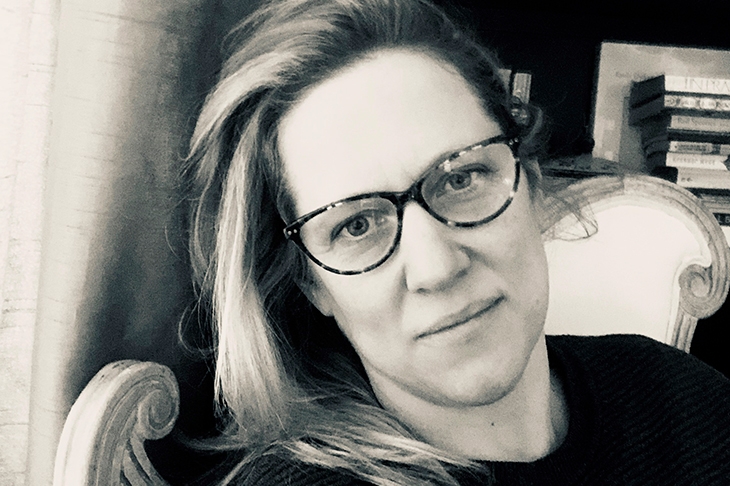The line between obsession and addiction is as thin as rolling paper. Neither are simple and both stem from absence, avoidance or — as Jenny, the dissatisfied housewife in Natasha Randall’s droll debut novel, calls it — life’s ‘marshmallow numbness’. Jenny’s drug? The sticky, sweet-smelling orange glue that seals the intimate letters she receives from a prison inmate called John — ‘just a little lick’ and a liquid warmth surges within her, letting her breathe, making the ground feel solid. But she isn’t the only Tinkley family member with a secret. Which brings us to the question posed by the outwardly forward-thinking Father Brian: ‘What sort of family is this?’
On the surface, all-American, starting with the name of Jenny’s husband: Hank. Flagging at work, Hank is intent on self-optimising at home. He converts the family’s Arts and Crafts house into a totally wired, all-seeing, all-hearing smart house. In the opening pages, he tells Jenny how it would work, ‘how much better their lives would be’; unfortunately, surveillance features he insists are neat, she finds creepy. In addition to living in a ‘house-being’, he believes self-improvement can be achieved by going to church – a weekly ritual Jenny regards as ‘outsourcing some parenting’.
Parenthood is just one of the big themes Randall skillfully cooks up in Love Orange. Another is imprisonment, which for Jenny is one and the same — motherhood is her ‘one glaring purpose’, a state she can never escape. There’s masculinity, which Hank fails to see as a social construct — ‘I’m not made of goddamn Lego bricks’ — and tries to squeeze out of his young sons: ‘This is a real wild camping trip — right, boys? We’re going to be like Neanderthals. Grrrr!’ Naturally, what 13-year-old Jesse would rather be doing is playing video games.








Comments
Join the debate for just £1 a month
Be part of the conversation with other Spectator readers by getting your first three months for £3.
UNLOCK ACCESS Just £1 a monthAlready a subscriber? Log in